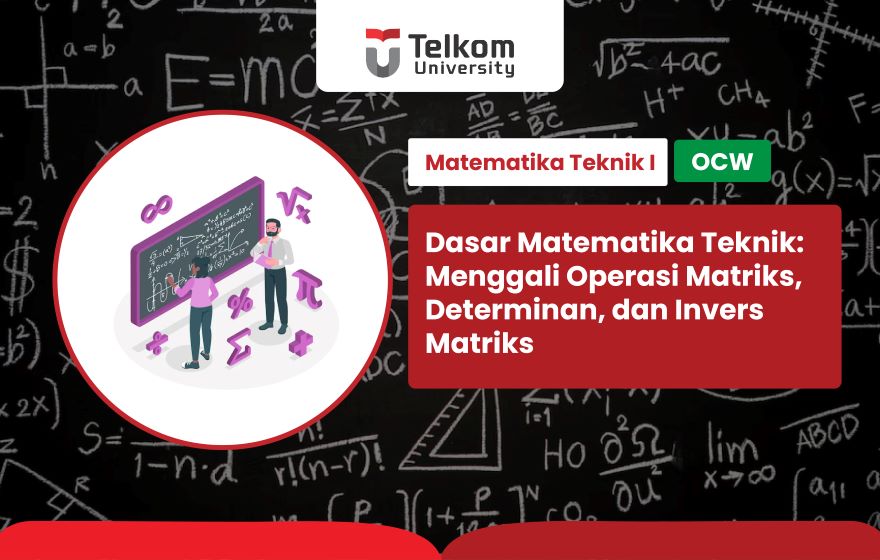
Technical Mathematics 1 (VKI1F2) in the D3 Computer Technology Study Program, Faculty of Applied Sciences, which is found in semester 1 of the 2020 Curriculum and is one of the compulsory courses at the first level. This course is one of the courses that repeats the basic understanding of mathematics that has actually been obtained in secondary school (matrices and SPL), as well as understanding new material, namely complex numbers and graph theory. This course will teach the concept of Matrix which includes matrix operation, determinant, inverse, and eigenvalue; solving Linear Equation System (SPL) using inverse method and Cramer’s Rules; and graph theory and its application which includes graph coloring, shortest path and huffman code. While Complex Numbers does not use this LMS.
Course Profile and History
This Engineering Mathematics 1 course provides knowledge of basic mathematical concepts regarding matrices, solving SPL and graph theory. This course is a development course from the previous course, namely technical mathematics and appeared when formulating the 2020 curriculum. This is because for the Computer Technology Study Program it is deemed insufficient only in discrete mathematics, but requires an understanding of other mathematics, so it is split into 2, namely Engineering Mathematics 1 and Engineering Mathematics 2. The content of this course is 2 credits which are part of the compulsory course for D3 Computer Technology students at the first level.
Course Relevance (Urgency)
The urgency of the Engineering Mathematics 1 course is that this course is a compulsory course for all D3 Computer Technology students at the first level. By taking this course, students will gain a basic understanding of mathematics that will be needed as a basis in other courses.
Links with other courses
Engineering Mathematics is a type of course that must be taken by all D3 Computer Technology students. This course is held in the first semester, and has no prerequisite courses. While the material, will be applied in several courses in the current semester or the next semester, such as the Electric Circuit course.
Learning Outcomes (CP)
The Learning Outcomes of this course are that students are expected to be able to:
Subject
This course will be conducted for 32 meetings in 16 weeks of lectures with the topics for each week as follows:
e-Learning Based Course Learning Plan
E-learning based learning from this course is only available for week 1 to week 6. That is matrix and SPL material with 6 subject matters.
To master this course easily, what can be done include:
Certification
There are no certifications associated with this course.
Lecture References
Nama : Lisda Meisaroh
Kode Dosen : LSD
Email : lisda@tass.telkomuniversity.ac.id
